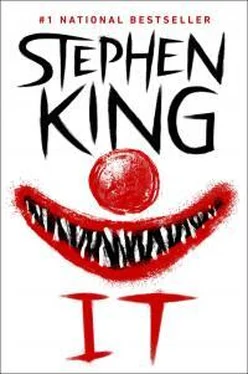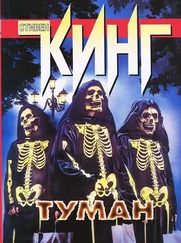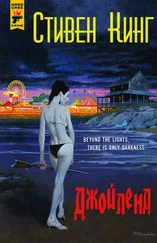Boutillier stopped, glaring at Harold.
“If we let in this clown story we’ll never bring it home to them. Do you want that?”
“No, I told you.”
“The guy was a fruit, but he wasn’t hurting anyone,” Boutillier said. “So hi-ho-the-dairy-o, along come these three pusholes in their engineer boots and they steal his life. I’m going to put them in the slam, my friend, and if I hear they got their puckery little assholes cored down there at Thomaston, I’m gonna send them cards saying I hope whoever did it had AIDS.”
Very fiery, Gardener thought. And the convictions will also look very good on your record when you run for the top spot in two years.
But he left without saying more, because he also wanted to see them put away.
18
John Webber Garton was convicted of first-degree manslaughter and sentenced to ten to twenty years in Thomaston State Prison.
Steven Bishoff Dubay was convicted of first-degree manslaughter and sentenced to fifteen years in Shawshank State Prison.
Christopher Philip Unwin was tried separately as a juvenile and convicted of second-degree manslaughter. He was sentenced to six months at the South Windham Boys’ Training Facility, sentence suspended.
At the time of this writing, all three sentences are under appeal; Garton and Dubay may be seen on any given day girl-watching or playing Penny Pitch in Bassey Park, not far from where Mellon’s torn body was found floating against one of the pilings of the Main Street Bridge.
Don Hagarty and Chris Unwin have left town.
At the major trial—that of Garton and Dubay—no one mentioned a clown.
CHAPTER 3
Six Phone Calls (1985)
1
Stanley Uris Takes a Bath
Patricia Uris later told her mother she should have known something was wrong. She should have known it, she said, because Stanley never took baths in the early evening. He showered early each morning and sometimes soaked late at night (with a magazine in one hand and a cold beer in the other), but baths at 7:00 P.M. were not his style.
And then there was the thing about the books. It should have delighted him; instead, in some obscure way she did not understand, it seemed to have upset and depressed him. About three months before that terrible night, Stanley had discovered that a childhood friend of his had turned out to be a writer—not a real writer, Patricia told her mother, but a novelist. The name on the books was William Denbrough, but Stanley had sometimes called him Stuttering Bill. He had worked his way through almost all of the man’s books; had, in fact, been reading the last on the night of the bath—the night of May 28th, 1985. Patty herself had picked up one of the earlier ones, out of curiosity. She had put it down after just three chapters.
It had not just been a novel, she told her mother later; it had been a horrorbook. She said it just that way, all one word, the way she would have said sexbook. Patty was a sweet, kind woman, but not terribly articulate—she had wanted to tell her mother how much that book had frightened her and why it had upset her, but had not been able. “It was full of monsters,” she said. “Full of monsters chasing after little children. There were killings, and . . . I don’t know . . . bad feelings and hurt. Stuff like that.” It had, in fact, struck her as almost pornographic; that was the word which kept eluding her, probably because she had never in her life spoken it, although she knew what it meant. “But Stan felt as if he’d rediscovered one of his childhood chums. . . . He talked about writing to him, but I knew he wouldn’t. . . . I knew those stories made him feel bad, too . . . and . . . and . . .”
And then Patty Uris began to cry.
That night, lacking roughly six months of being twenty-eight years from the day in 1957 when George Denbrough had met Pennywise the Clown, Stanley and Patty had been sitting in the den of their home in a suburb of Atlanta. The TV was on. Patty was sitting in the love-seat in front of it, dividing her attention between a pile of sewing and her favorite game-show, Family Feud. She simply adored Richard Dawson and thought the watch-chain he always wore was terribly sexy, although wild horses would not have drawn this admission out of her. She also liked the show because she almost always got the most popular answers (there were no right answers on Family Feud, exactly; only the most popular ones). She had once asked Stan why the questions that seemed so easy to her usually seemed so hard to the families on the show. “It’s probably a lot tougher when you’re up there under those lights,” Stanley had replied, and it seemed to her that a shadow had drifted over his face. “Everything’s a lot tougher when it’s for real. That’s when you choke. When it’s for real.”
That was probably very true, she decided. Stanley had really fine insights into human nature sometimes. Much finer, she considered, than his old friend William Denbrough, who had gotten rich writing a bunch of horrorbooks which appealed to people’s baser natures.
Not that the Urises were doing so badly themselves! The suburb where they lived was a fine one, and the home which they had purchased for $87,000 in 1979 would probably now sell quickly and painlessly for $165,000—not that she wanted to sell, but such things were good to know. She sometimes drove back from the Fox Run Mall in her Volvo (Stanley drove a Mercedes diesel—teasing him, she called it Sedanley) and saw her house, set tastefully back behind low yew hedges, and thought: Who lives there? Why, I do! Mrs. Stanley Uris does! This was not an entirely happy thought; mixed with it was a pride so fierce that it sometimes made her feel a bit ill. Once upon a time, you see, there had been a lonely eighteen-year-old girl named Patricia Blum who had been refused entry to the after-prom party that was held at the country club in the upstate town of Glointon, New York. She had been refused admission, of course, because her last name rhymed with plum. That was her, just a skinny little kike plum, 1967 that had been, and such discrimination was against the law, of course, har-de-har-har-har, and besides, it was all over now. Except that for part of her it was never going to be over. Part of her would always be walking back to the car with Michael Rosenblatt, listening to the crushed gravel under her pumps and his rented formal shoes, back to his father’s car, which Michael had borrowed for the evening, and which he had spent the afternoon waxing. Part of her would always be walking next to Michael in his rented white dinner jacket—how it had glimmered in the soft spring night! She had been in a pale green evening gown which her mother declared made her look like a mermaid, and the idea of a kike mermaid was pretty funny, har-de-har-har-har. They had walked with their heads up and she had not wept—not then—but she had understood they weren’t walking back, no, not really; what they had been doing was slinking back, slinking, rhymes with stinking, both of them feeling more Jewish than they had ever felt in their lives, feeling like pawnbrokers, feeling like cattle-car riders, feeling oily, long-nosed, sallow-skinned; feeling like mockies sheenies kikes; wanting to feel angry and not being able to feel angry—the anger came only later, when it didn’t matter. At that moment she had only been able to feel ashamed, had only been able to ache. And then someone had laughed. A high shrill tittering laugh like a fast run of notes on a piano, and in the car she had been able to weep, oh you bet, here is the kike mermaid whose name rhymes with plum just weeping away like crazy. Mike Rosenblatt had put a clumsy, comforting hand on the back of her neck and she had twisted away from it, feeling ashamed, feeling dirty, feeling Jewish.
Читать дальше








